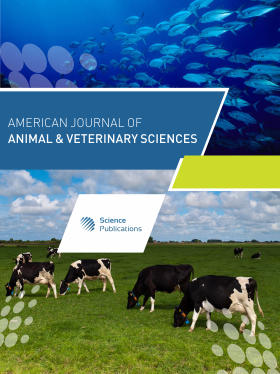Effect of Body Weight and Age at Puberty and Mating on Subsequent Gilt Development Weights, Litter Traits, and Colostral Immunoglobulin G of the F1 Large White X Landrace Gilts
- 1 Department of Animal Sciences, Tshwane University of Technology, Private Bag X680, Pretoria, South Africa
- 2 Animal Genetic Centre, Topigs Norsvin, Farm Bossemanskraal 538 JR, Bronkhorstspruit, South Africa
Abstract
The purpose of this study was to assess how body weight and age at puberty and mating in F1 Large White x Landrace pigs influence subsequent gilt development weights, litter characteristics, and colostral immunoglobulin G levels. A total of 168 gilts were categorized into different weight groups, i.e., body weight at puberty (lighter gilts: <103 kg, moderate gilts: 103-109 kg) and heavier gilts: >109 kg), different age groups at mating (Young age: <224 Days of Age (DOA), Middle age: 224-229 DOA and Older age: >229 DOA) body weight at mating (lighter gilts: <155 kg), moderate gilts: 155-163 kg, heavier: >163 kg). A digital Brix refractometer was utilized to measure colostral immunoglobulin G levels. The General Linear Model in Minitab 17 was used to analyze the data generated in this study and Fisher's LSD test was done using mean separation (p<0.05). The weight at the second estrus for the heavier gilts at puberty (123.01 kg) was higher (p<0.05) than that of the lighter gilts on the second estrus (121.88 kg). The age at mating for young, middle, and older were 220.63, 226.85, and 233.50 Days of Age, respectively. Gilts mated at an older age had a lower (p<0.05) backfat at mating (12.03 mm) than those mated at a young age (13.08 mm) and middle age (12.84 mm). Gilts mated in middle age farrowed at a higher (p<0.05) weight (239.68 kg) than those mated at young age (233.63 kg). The litter traits and colostral immunoglobulin G were comparable (p>0.05) among the body weight groups at puberty as well as between different age groups at mating. Litter traits and colostral immunoglobulin G are more hereditary (genotype) than environmentally regulated.
DOI: https://doi.org/10.3844/ajavsp.2024.338.348

- 964 Views
- 465 Downloads
- 0 Citations
Download
Keywords
- Colostrum
- Gestation Gain
- Litter Size
- Sus Scrofa Domesticus
